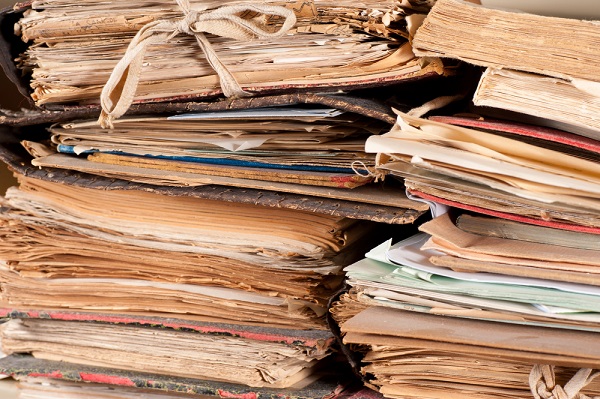Why Document Restoration Should Be Part of Your Disaster Plan

By: Adam Lyszczarz
While it may seem everything has gone digital today, the practice is relatively new. Most people and businesses do not have all their documents digitalized, especially the paperwork from the past 10 years.
Old paperwork is commonly kept in places out of the way, such as basements, crawlspaces or storage rooms. These critical documents, such as property deeds, financial records and patient charts can easily be damaged by water, fire, smoke, mold or humidity.
As an insurance agent, you are on the frontline for dealing with claims related to disasters and accidents. When water distorts or destroys signatures on documents, this can void the legality of the document. Often, a company’s file retention requires the originals to be stored or accessible for a specific period. These documents must be saved.
Restoring files is necessary to restart a business’ day-to-day operations after a disaster or an accident. By restoring these documents, businesses save valuable time and money.
What Happens If Your Agency’s Documents Are Damaged?
For document restoration, time is of the essence. If you or a client experiences water damage at your home or business, it’s important to act quickly. It is essential that documents compromised by water are removed from the wet environment as quickly as possible and, if saturated or damp, are immediately frozen before any further deterioration can take place.
Also, mold spores can form on water-damaged documents within 72 hours. By including a document restoration specialist in your disaster plan, they can determine the severity of the incident and determine the correct course of action to take.
In some cases, the documents may need to be transported to a secured facility to be treated. However, make sure the facility the vendor uses is under 24-hour surveillance, radio frequency identification (RFID) logged and locked and HIPAA compliant, which allow restoration to take place within even the most stringent security guidelines.
Air drying is acceptable for singular documents that have only been sprinkled with water. However, freeze drying is the most effective and efficient form of document drying for high-volume projects, which yields the best results without further compromising the paper.
A team may also conduct industrial hygienist (IH) testing, an industry-wide test that will write the protocol for treatment. All documents that test positive for mold are gamma irradiated in a special facility to break down any active mold on the cellular level, rendering it inert. This process will make the documents safe to handle again. From there, a variety of services are offered based on the condition the customer wants or needs the paperwork returned.
Dealing with books can be especially challenging, which means it’s important for clients to determine their goals. Some books can be replaced if they’re still in print. If they aren’t, clients need to understand that they may only get these restored to their best possible condition, not their previous condition. A total loss inventory would then be generated so the client may be reimbursed.
Document restoration is a unique service that many people are unfamiliar with. Through years of experience, the newest technology and a highly trained staff, a business or person’s history can be saved.
I urge your clients—especially those who work for large corporations—to add a document restoration plan to any crisis response plans that they have. Restoring documents keeps businesses in operation and ensures that they maintain their legality.
Losing documents isn’t an option—and it’s crucial for all insurance professionals and risk managers to have a document restoration service on hand and ready to use in case of disaster.
Adam Lyszczarz is program manager, documents division, of Prism Specialties of Southeast Michigan. Prism Specialties provides the most robust range of electronic, textile, art and document restoration services in residential and industrial markets and has been since 1993.










